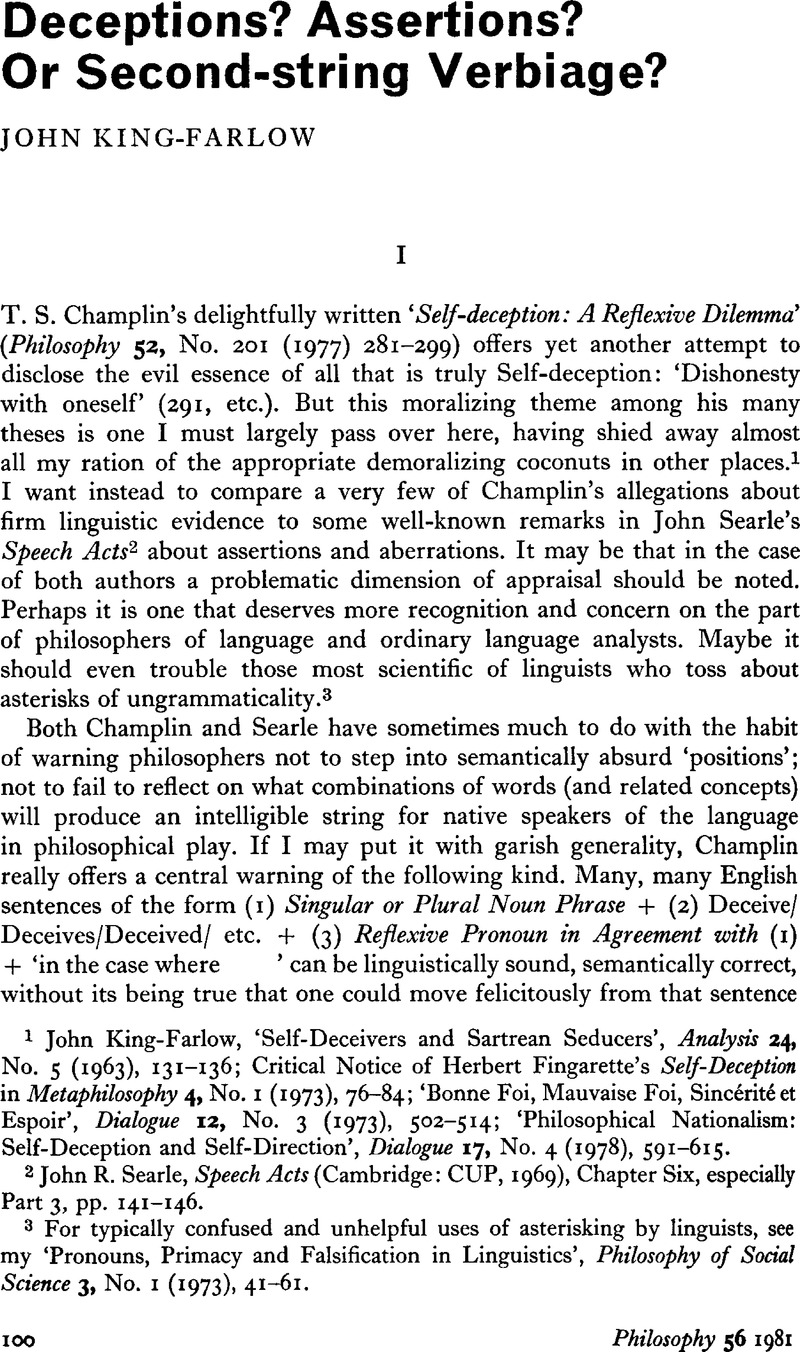No CrossRef data available.
Published online by Cambridge University Press: 30 January 2009

1 King-Farlow, John, ‘Self-Deceivers and Sartrean Seducers’, Analysis 24, No. 5 (1963), 131–136CrossRefGoogle Scholar; Critical Notice of Fingarette's, HerbertSelf-Deception in Metaphilosophy 4, No. 1 (1973), 76–84Google Scholar; ‘Foi, Bonne, Foi, Mauvaise, Sincérité et Espoir’, Dialogue 12, No. 3 (1973), 502–514Google Scholar; ‘Philosophical Nationalism: Self-Deception and Self-Direction’, Dialogue 17, No. 4 (1978), 591–615.
2 Searle, John R., Speech Acts (Cambridge: CUP, 1969), Chapter Six, especially Part 3, pp. 141–146CrossRefGoogle Scholar.
3 For typically confused and unhelpful uses of asterisking by linguists, see my ‘Pronouns, Primacy and Falsification in Linguistics’, Philosophy of Social Science 3, No. 1 (1973), 41–61.
4 Compare again the four papers cited in footnote 1.